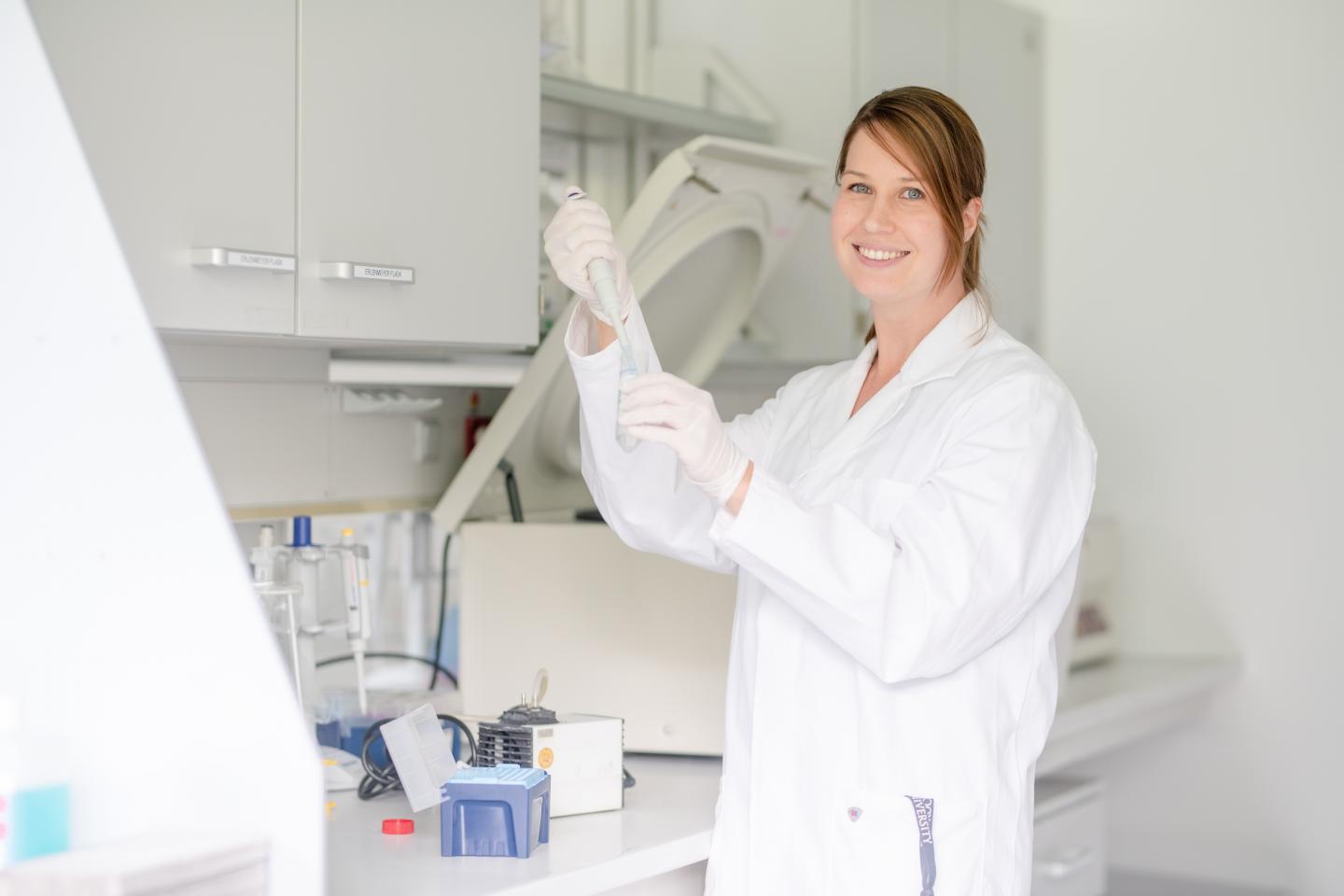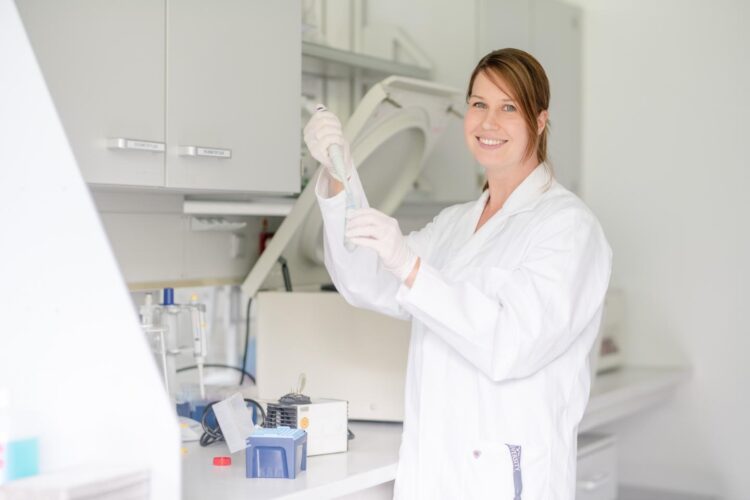An endogenous protein prevents the virus from fusing with host cells

Credit: RUB, Marquard
A protein produced by the human immune system can strongly inhibit corona viruses, including Sars-Cov-2, the pathogen causing Covid-19. An international team from Germany, Switzerland and the USA successfully showed that the LY6E-Protein prevents coronaviruses from causing an infection. “This finding might lead to the development of new therapeutic approaches against coronaviruses,” says Professor Stephanie Pfänder from the Department for Molecular and Medical Virology at Ruhr-Universität Bochum (RUB), lead author of the study published by the team in the journal Nature Microbiology on 23 July 2020.
Strengthening influenza viruses, impairing corona viruses
The LY6E protein plays a role in various diseases: US researchers Professor John Schoggins and Professor Charles Rice discovered that the protein enhances the infectivity of influenza viruses. In contrast, coronaviruses are inhibited by LY6E.
Funded by a Marie Curie Individual Fellowship of the European Union, Stephanie Pfänder, who was then working at the Institute of Virology and Immunology in Switzerland, visited Charles Rice’s lab at Rockefeller University in New York in 2017, in order to identify genes that prevent coronavirus infections. “This led to the discovery that LY6E has the opposite effect on coronaviruses compared to influenza viruses,” explains the researcher. Further investigations showed that the protein exerted this inhibitory effect on all analysed coronaviruses, including the pathogens causing Sars and Mers as well as Sars-Cov-2 which causes Covid-19.
Viruses unable to fuse
Tests with different cell cultures showed that LY6E affects the ability of the virus to fuse with the host cells. “If the virus is unable to fuse with these cells, it can’t cause infection,” explains corresponding author Professor Volker Thiel from the University of Bern.
The validation in an animal model succeeded thanks to a collaboration with the laboratory of John Schoggins at the Southwestern Medical Center of the University of Texas. The experiments conducted there led to the discovery that the mouse variant of the protein called Ly6e is crucial for the protection of immune cells against infections. In the absence of Ly6e, immune cells such as dendritic cells and B-cells become more susceptible to infection and their numbers decrease dramatically. Mice lacking Ly6e in immune cells are highly susceptible to a normally non-lethal mouse coronavirus and succumb to infection.
Understanding basic concepts
The researchers point out that the mouse coronavirus used in the experiment differs significantly from the pathogen causing the current Covid-19 outbreak – for example, it causes hepatisis rather than respiratory disease. Nevertheless, it is widely accepted as a model for understanding the basic concepts of coronavirus replication and immune responses in a living animal.
“Our study provides new insights into how important these antiviral genes are for the control of viral infection and for an adequate immune response against the virus,” say the authors. “Since LY6E is a naturally occurring human protein, we hope that this knowledge will aid the development of therapies that may one day be used to treat coronavirus infections.” A therapeutic approach that mimics the mechanism of action of LY6E may provide a first line of defence against novel coronavirus infections.
###
Media Contact
Stephanie Pfänder
[email protected]
Original Source
https:/
Related Journal Article
http://dx.





